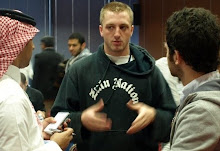The most comprehensive peace agreement to date between representatives from Yirol West and Mvolo was made at a meeting on Monday 6th June in Mapuordit, which I attended as an observer in my capacity with MRDA.
Statements of reconciliation were witnessed by communities, army, police and NGOs and commitments were made by leaders from both sides including declaration of free movement across the border. Furthermore all involved committed on both sides to administrative and legislative implementation. The meeting was pushed forward by the expert facilitation of the Mapuordit Payam Administrator Benjamin Mayor Alony and Lieutenant John Aboke of the Joint Integrated Unit (JIU), with support from Nonviolent Peaceforce, an international NGO that helps make space for dialogue to promote peace.
The conflict between combatants from Yirol West and Mvolo counties has raged since early February, a cycle of revenge resulting in the deaths of at least 50 people and displacement of tens of thousands of either side of the border. Vital health and education services, as well as the livelihoods of thousands of cultivators, have been severely disrupted. MRDA held a workshop in April for representatives of Western Equatoria and Lakes states to discuss ways forward and has continued to follow peace efforts.
The JIU, based until recently in Khartoum, under terms of the CPA, are an elite military unit made up of Northern (SAF) and Southern (SPLA) Sudanese troops , reserved for addressing internal conflicts that might undermine peace and self-determination. Upon independence the unit will be formally dissolved and troops reintegrated into their respective armies. Southern units from JIU have already returned to South Sudan. Since Mid-May the JIU have had troops stationed either side of the Mvolo-Yirol West border and patrolled in an attempt to reduce violence and increase feelings of security amongst the community. Their deployment had been requested by the Governors of Western Equatoria and Lakes states. They have also reached out to Chiefs on either side to engage them in peacemaking efforts since arriving in the area.
A successful meeting between representatives from Mapuordit and Kokori Payams on June 1st ended with a commitment to a more inclusive meeting the following week. A boost was given to preparations to mobilize when Commander Mariel Deng Nyok, the head of national security for the whole of South Sudan, visited affected areas to reiterate the commitment of GOSS to achieving peace and security in Mvolo and Yirol West and to push the communities to honor their own responsibilities.
The meeting was originally scheduled to take place in the area of Gynop. At the suggestion of the Mvolo chiefs this was changed to Mapurdit, a location also consistent with the resolutions of the Governors meeting in March and the MRDA workshop in April, both of which identified Mapurdit as an ideal location for peace talks. Though the meeting was originally scheduled for Saturday, logistic difficulties presented proceedings going ahead until Monday afternoon, by which time each delegation had had time to prepare and dialogue informally. A large thunderstorm immediately preceded the opening of events and was noted by all involved as an auspicious omen for peace.
‘Anything we had, rain has washed away’
The key message taken away was that all present wanted peace and believed that it could be achieved with their partners from the other side. Complete freedom of movement across the border was declared. The conflicts that arise because of unregulated cattle movement were clearly and honestly mentioned and there was a commitment to draft a new local legislation that provides a framework for regulating movement fairly and transparently so that people who violate agreements can be held to account. It was determined that another, smaller meeting would take place in Mvolo the following week to work on the details of this law and action plan. One chief, Door Awou of Kathier, did mention the challenge of working with youth with arms proliferation so high compared to previous times.
‘If you carry a gun you consider yourself a chief, a president even. Then who can tell you what to do?’
This may be considered as one challenge to implementation of the peace agreeent. Another challenge could arise from the behavior of particular chiefs who were absent. This was noted and they were singled out for approaching directly as soon as possible to report the agreement and involve in the process. If such a diplomatic approach was to fail it was suggested that they be referred to the security forces to be dealt with via legal or military means. Perhaps the most vehement contribution came from the only female contributor on the day, Alice Yange of Mvolo, who referred to the freedom struggle against the Sudanese government and the current troubles in the dispute border area of Abeyi.
‘Shame on us, we fought for independence so we could have development and now we are burning each other’s huts! If anyone wants to fight, the chiefs should take all their names down and send them to Abiyei to fight.’
The role of Government and NGOs in supporting implementation was strongly emphasized by chiefs as was continued the need for humanitarian assistance from NGOs to be provided for IDPs and returnees, which will present a serious logistical challenge. Overall, this community driven meeting was a resounding success and has set a strong foundation the stage for continued progress. Doubtless there will be setbacks in the journey toward long term peace but the spirit of this meeting set a great precedet for the future.
Wednesday, 22 June 2011
Subscribe to:
Comments (Atom)
